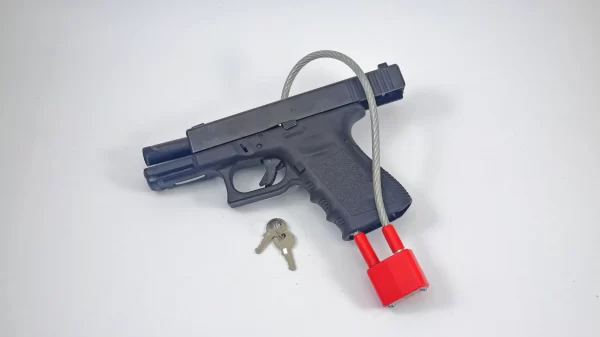|
Getting your Trinity Audio player ready...
|
Legislation pre-filed by Rep. Russell Bedsole, R-Alabaster, and Sen. April Weaver, R-Alabaster, would slash the amount of incentive time incarcerated individuals earn per day of good behavior.
The bill, titled the Deputy Brad Johnson Act in reference to the Alabama deputy killed by a formerly incarcerated man who had been let out of jail on good time, also clarifies instances in which a prisoner should have their incentive time revoked.
“As jail commander for the Shelby County jail, I know correctional incentive time is a necessary part of what ADOC is doing to incentivize inmates to have good behavior,” Bedsole said. “It appears the system hasn’t been working the way it was intended by statue. It’s set up to be like a stick and carrot dangled out there … In my experience, correctional incentive time is being automatically applied.”
The bill would significantly cut the amount of good time that could be accrued by an incarcerated individual. Currently, the most trustworthy prisoners earn 75 days of incentive time for every 30 days served as “Class I” for their trustworthy behavior. That’s 2.5 days of incentive time for every day served. This legislation would cut that down to 30 days, or one day of incentive time for one day served.
Class II prisoners, which are defined as inmates who work under the supervision of a correctional employee at all times, would earn 15 days of incentive time for every 30 days worked instead of 40 days as currently defined by law. Additionally, the law proposes that an incarcerated individual must be classified as a Class II prisoner for a full year before being eligible to move up to Class I status, doubling the current requirement of six months.
Continuing the trend, Class III prisoners would get five days of incentive time per 30 days worked, compared to 20 days of incentive time under current statute. The law again doubles the length of time from three months to six months before a Class III prisoner is eligible to move up to Class II.
Class IV prisoners under both current law and the new law do not receive incentive time.
Individuals enter the prison system as Class IV status and must work their way up the ranks to receive good time. The bill would triple the amount of time it takes to move up out of this classification, from 30 days to three months.
Under current statute, an incarcerated individual with perfect behavior could earn up to 450 days of good time in their first year in the system. Under the new legislation, a perfectly behaved inmate would earn 75 days in the first year.
By the end of year 2, under current statute, an inmate behaving perfectly would accuse 1,350 days of incentive time, or nearly four years. Under the newly proposed structure, the same inmate would earn just 225 days of incentive time.
Bedsole said his constituents are “quite comfortable with the idea of inmates serving the majority of their sentences.”
Bedsole said he looked at the changes from the perspective of someone running a correctional facility, and what would be fair to offer as an incentive, vs what would be fair if he was inside the system.
“For me, that’s a fair and realistic goal,” Bedsole said. “You’re expected to abide by the rules, if you abide by the rules, for every day you behave yourself, you earn a day decrease of your sentence.”
The bill is named for Deputy Brad Johnson, who served with the Bibb County Sheriff’s Office in Bedsole and Weaver’s district. However, as APR previously reported, Johnson’s accused killer was let out on good time due to missteps by both state and county officials. Austin Patrick Hall had previously assaulted a correctional officer and escaped from prison for an entire month, but his correctional incentive time was never rescinded.
“To be fair, there is and was some debate over whether the accused in this case had benefitted from this good time statute,” Bedsole said. “I don’t want to get into a debate about that piece of it, but there was enough information there to reconsider (the good time laws).”
This legislation clarifies escape as one of nine prison rule violations that should lead to incentive time being revoked. Others include homicide, assault that causes serious physical injury, holding hostage, sexual assault, inciting a riot or rioting and arson.
The legislation also spells out a report that must be provided to the Legislature each year, detailing how many prisoners are in each classification, the number who change classifications, and the number of individuals who forfeited their incentive time due to a violation.
Bedsole said he expects criticism of the bill from people who “advocate for early release of prisoners.”
“Should we be concerned about our prison system? I would say yes,” Bedsole said. “But we should not be afraid to try to address the issues before us.
“In my first session in 2021 we had numerous bills presented to help fix our prison problems. Every one of those bills had the common element about releasing inmates early to reduce the inmate population. It’s almost as if we are continuing to victimize the victims all over again. They stood bravely before their offender to hold that person accountable, and as lawmakers we have found ways to let individuals out early to fix the prison system. What about the rights of victims in our state?”
The regular session begins on March 7.





















































